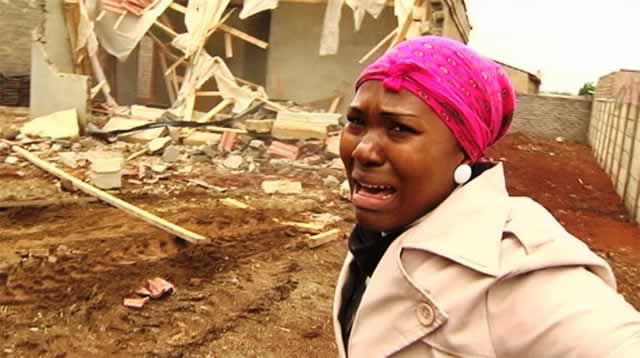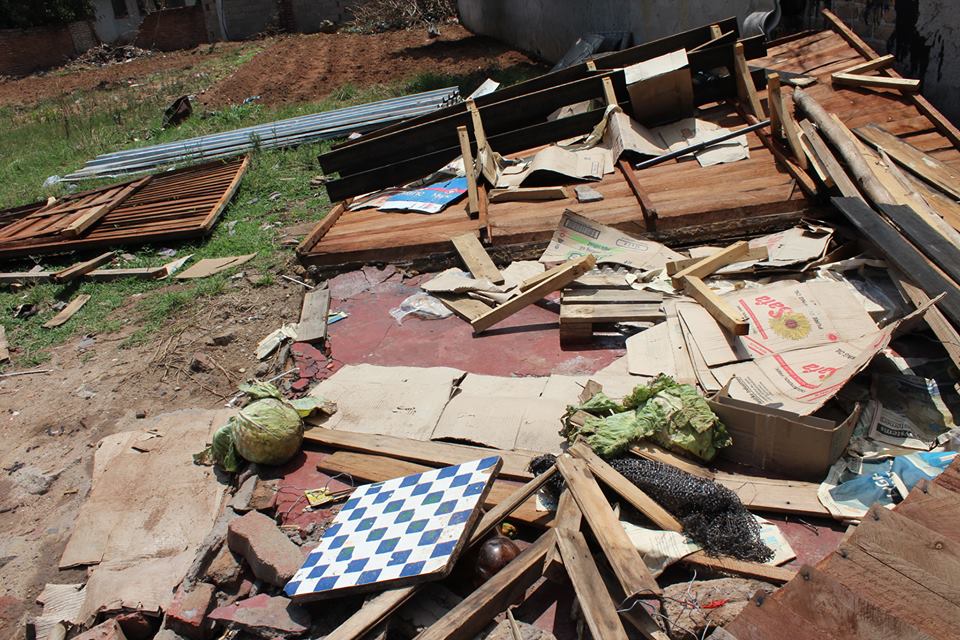On the 6th of November 2013 the government of Zimbabwe ordered demolition of tuck shops and residential 'illegal' structures in Ruwa and Damofalls medium density areas in Harare, under the watchful eye of the riot police. Despite strong condemnation from civil society and residents' groups concerned with the welfare of families, bulldozers tore down structures as ordered by Local Government Minster Ignatius Chombo. In the highly populated town of Chitungwiza initially, 10,000 structures were set for destruction but the number has since grown to more than 25,000 -- a shocking figure.
In the past years Zimbabwe has contributed to the violation of economic social cultural rights through such undertakings as Operation Murambatsvina a massive clearing out of illegal dwellings and slums which displaced over 700,000 men, women, and children who lived in informal housing. In its aftermath, over one-hundred thousand families were rendered homeless. The displacements crippled Zimbabwe's economy, as well as its social and political structures, but the hardest felt impact was the human rights abuses directly inflicted on the most vulnerable population. More particularly those already living in poverty and barely making a living from the informal business sector; HIV/AIDS patients left with no access to treatment; school aged children having their educations disrupted; and the elderly left homeless with no support.
There are fears that history is repeating itself with the new demolitions and if they are allowed to continue a humanitarian crisis will ensue. There are many speculations as to the real reasons for the demolitions and some perceptions are that the actions of the government are a retributive act against suspected Movement for Democratic Change party supporters. There is widespread outrage and shock at the actions of government, and it is being called upon to meet its obligation of providing people with shelter and desist from inflicting pain on its poor citizens.

The timing of the demolition is also very bad as the country is in the rainy season. The planned demolitions and plans to remove people without putting a clear mechanism in place of alternative shelter will not only expose these people to homelessness and suffering but also infringes on the rights of the residents to decent housing and shelter, freedom form arbitrary evictions as espoused by the new constitution, the African Charter on Human and People's Rights and the UN Charter.
The Minister of Local Government Hon. Chombo's must comply with the provisions of Section 74 of the new Constitution which states that: "No person may be evicted from their home, or have their home demolished, without an order of court made after considering all the relevant circumstances. Further his ministry must make available the total number of households that will be affected in particular how many children will be left without shelter and the duration of the notice period given to the affected families and persons and in what form shall the notice be so that plans can be put in place to assist those in need. Many feel that it would have been reasonable for the government to build low cost housing first so that the displaced would have somewhere to go.

The Ministry of Local Government, Public Works and National Housing must ensure that all families and people are provided alternative accommodation by the ministry and local authority concerned considering the ministry's obligations in terms of Section 28 of the Constitution. Section 28 of the Constitution states that: The State and all institutions and agencies of government at every level must take reasonable legislative and other measures, within the limits of the resources available to them, to enable every person to have access to adequate shelter.
The questions that begs for an answer however is why these illegal structures were allowed to grow into settlements. Such complexities can be avoided by dealing with these challenges as soon as they arise and also curbing corruption from officials who allow these buildings to be erected. Before the building is even completed it should be demolished. This should be a continuous exercise and it would clearly send a message that would act as a deterrent and avoid the humanitarian crisis and suffering of the poor.